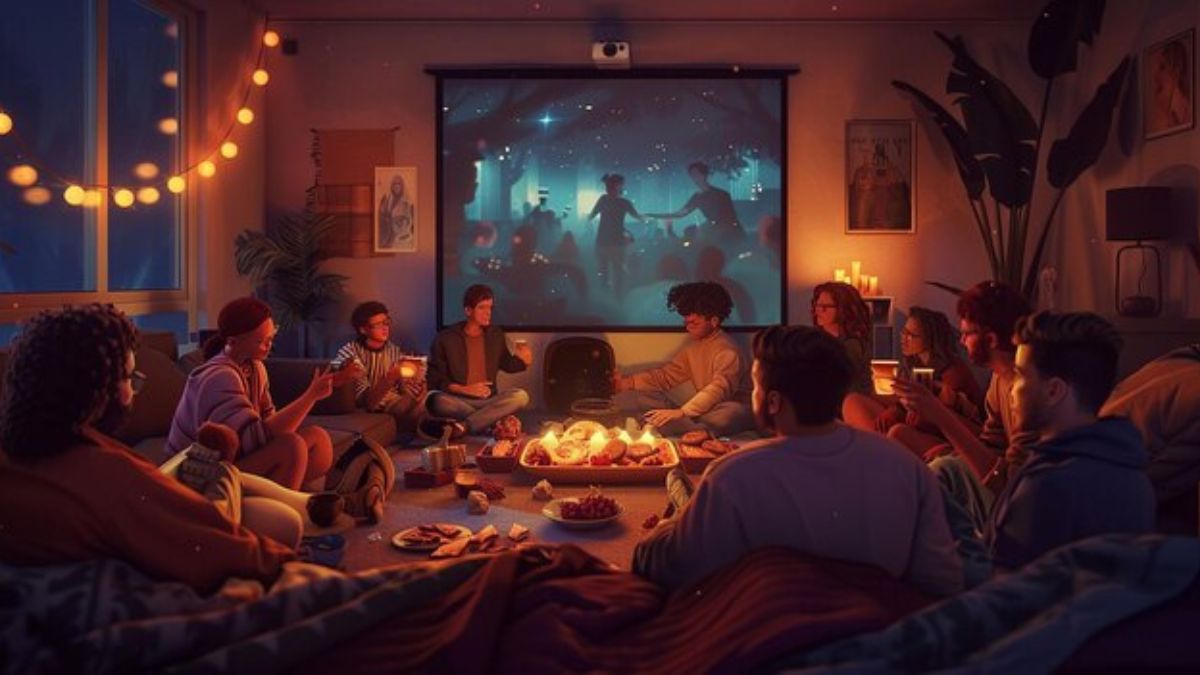Have you ever stopped to wonder if the reality we live in is nothing but an intricate simulation? The concept of My Life Can Be Infinitely Simulated may sound like something out of a science fiction movie, but as technology advances and our understanding of the universe deepens, the idea becomes both intriguing and plausible. Join me on a journey through the rabbit hole of simulation theory, where we explore the arguments for and against this mind-bending possibility. Strap in, because things are about to get simulated!
The possibility of My Life Can Be Infinitely Simulated
Have you ever stopped to ponder the possibility that our lives might be nothing more than a sophisticated simulation? The concept of living in a simulated reality is not just reserved for science fiction novels or movies anymore. With the rapid advancements in technology and artificial intelligence, the idea of being part of a complex computer-generated world is becoming increasingly plausible.
Think about it – our experiences, emotions, relationships, and even random events could all be meticulously programmed as part of a grand simulation. But what implications does this hold for our perception of reality? Would knowing that we are essentially characters in someone else’s simulation change how we live our lives?
While some argue that believing in such theories undermines the essence of human existence, others find solace in the idea that there may be more to reality than meets the eye. It’s a thought-provoking concept that challenges us to question everything we think we know about ourselves and the world around us.
Arguments for and against simulation theory
Have you ever pondered the idea that our reality might just be a sophisticated simulation? The concept of simulation theory proposes that our existence could be intricately programmed, much like a complex video game. Proponents argue that advancements in technology and artificial intelligence support the plausibility of such a simulation.
On one hand, advocates point to the exponential growth in computing power and virtual reality capabilities as evidence for the potential simulation of entire worlds. They suggest that if civilizations can create My Life Can Be Infinitely Simulated, then it’s plausible that we ourselves may be living within one.
However, skeptics raise valid concerns about the limitations of human understanding and consciousness. They question whether it is ethical or even possible to accurately replicate every detail of existence within a simulated environment. The debate between believers and doubters continues to spark intriguing discussions about the nature of reality itself.
Technological advancements supporting simulation theory
In today’s rapidly evolving technological landscape, the concept of simulation theory has gained significant traction. Advancements in artificial intelligence, virtual reality, and quantum computing have all contributed to the plausibility of our lives being simulated.
Artificial intelligence continues to push boundaries by creating increasingly realistic simulations of human behavior and environments. From chatbots to deep learning algorithms, AI is paving the way for complex virtual worlds that blur the lines between what is real and what is artificially created.
Virtual reality technology allows us to immerse ourselves in digital realms that mimic our physical world with stunning accuracy. As VR experiences become more immersive and indistinguishable from reality, it raises questions about the nature of existence and perception.
Quantum computing, with its ability to process vast amounts of data at speeds unimaginable with traditional computers, opens up possibilities for simulating entire universes with intricate detail. The sheer power and potential of quantum computers challenge our understanding of reality as we know it.
As technology continues to advance at an exponential rate, it prompts us to ponder the profound implications of living in a simulated world where boundaries between real and virtual are increasingly blurred.
Personal experiences that may support or contradict simulation theory
Have you ever experienced déjà vu so intensely that it made you question the fabric of reality? Or perhaps you’ve had dreams that felt eerily vivid, blurring the lines between waking life and slumber. These personal encounters with the seemingly inexplicable can sometimes ignite a spark of curiosity about simulation theory.
Some people claim to have encountered glitches in the matrix – moments where time seemed to stutter, or events unfolded in an uncannily scripted manner. Others find comfort in synchronicities, believing them to be subtle signs from a higher intelligence orchestrating My Life Can Be Infinitely Simulated.
On the contrary, skeptics argue that emotions like love and grief feel too raw and authentic to be mere simulations. They point to the complexity of human consciousness as evidence against our lives being artificially created.
Regardless of which side you lean towards, personal experiences play a significant role in shaping our perspectives on reality versus simulation.
Morality and ethics in a simulated world
Imagine living in a world where the lines between right and wrong are blurred, where reality itself may be just a construct. In a simulated existence, does morality hold the same weight? Would our actions still carry consequences if they were merely part of a grand simulation?
The ethical implications of living in such a world can be mind-boggling. If our choices and behaviors are predetermined or manipulated by some higher force, do concepts like good and evil even matter? Or would they become arbitrary constructs designed to maintain order within the simulation?
Questions about morality and ethics in a simulated reality raise profound philosophical debates. Would empathy and compassion lose their meaning if suffering could simply be reset with the click of a button? How would we navigate moral dilemmas when the very fabric of our existence is uncertain?
Contemplating these questions challenges us to rethink our understanding of right and wrong, pushing us to explore deeper layers of consciousness and empathy towards others – real or simulated.
Conclusion: Embracing the uncertainty of our reality
As we navigate through the complexities of our existence, one thing becomes clear – the uncertainty of our reality is both daunting and liberating. Embracing the idea that our lives could be infinitely simulated opens up a realm of possibilities and challenges us to question the very nature of our existence.
Whether you believe in simulation theory or not, pondering the concept can spark profound conversations about consciousness, morality, and ethics. It invites us to explore what it truly means to be human in a world where boundaries between real and artificial blur.
So, as we grapple with these existential questions, let’s remember that embracing uncertainty does not diminish the value of our experiences but rather enriches them with depth and meaning. Let’s embrace the mystery of our reality and continue seeking answers while cherishing every moment along this enigmatic journey called life.











